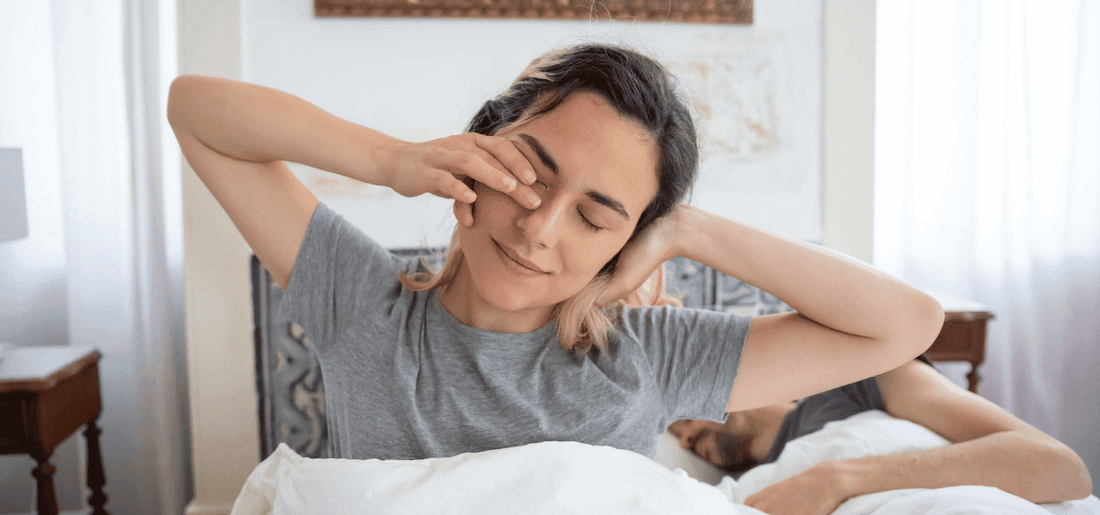When should you get up to be productive?

"The early bird catches the worm." This saying is often used to suggest that if you want to be more productive, it's better to wake up early than late. Some celebrities and entrepreneurs swear by it, emphasizing that the reason for their success is getting up at 4 a.m. and putting in a few hours of hard work before the day really begins.
Of course, like any saying, this one lacks details. There are many factors to consider when determining the best time to wake up for productivity. In this blog post, we'll explore those factors, briefly describe the benefits of waking up early, and explain what steps you can take to increase your early morning productivity.
Morning larks vs. night owls
Sleep quality, duration and consistency can affect cognitive function and performance 1. From another perspective, sleep plays an important role in productivity, so before trying to determine the best time for morning productivity, it is important to know your chronotype, which indicates your sleep-wake preferences. 2
It goes without saying that every person is unique. Each person has a preferred time to wake up and, more importantly, an optimal time when they reach their physical or cognitive peak (and are therefore most physically or mentally productive).
People who get up early are known as morning larks 3. Their circadian rhythm favors "morning fitness," or going to bed early and getting up early. Above all, studies show that they are mentally and physically more efficient in the morning hours. 4
In contrast, people who stay up late and prefer to wake up later are called night owls. Their circadian rhythm favors the "evening mood." They tend to reach their mental and physical peak in the late afternoon or evening. 5 In addition, night owls experience more sleep drunkenness than morning larks 6 - sleep drunkenness is the feeling of tiredness upon waking when cognitive and physical performance is impaired. 7
Various studies, some of which are presented below, have investigated the relationship between chronotypes, sleep behavior and productivity.
Studies on the best time to wake up to be productive
The question of exactly when is the best time to wake up in order to be productive is of great interest to companies, academic institutions, policy makers and others. This has naturally led to a number of studies on the topic.
A study that focused on students to determine the most productive start time for university courses found that while there is no "one size fits all," start times around lunchtime or later work well for everyone. 8 Of course, getting up at lunchtime is inconvenient for students and working professionals, but it's good to keep this in mind when planning perhaps more demanding or complex tasks. The study also found that even morning larks struggle to be productive between 5 and 6 a.m., with their productivity improving significantly after 7 a.m. In addition, their peak productivity is between 9 a.m. and 12 p.m., while night owls' peak productivity is between 5 and 9 p.m. 9
Another study, looking at healthy individuals, focused on time of day and chronotype in relation to cognitive and physical performance. The study found that peak performance differs markedly between morning larks and night owls, with the latter experiencing greater daytime sleepiness and performing significantly worse both cognitively and physically in the morning. 10 Another study found that age-related circadian patterns also play a role in this association, with older adults typically peaking in the morning, while younger adults peak in the afternoon. 11 Other factors that have been studied in relation to wake-up times and productivity include day of the week 12 and stress 13 - and again, there are results that do not point to a single time of day for peak performance.
While some people may wonder, "Am I more productive if I wake up at 5 a.m.?", these studies suggest that there is no perfect or best time to wake up to be productive.
This doesn't mean that you shouldn't wake up earlier if you want to get more done during the day. It also doesn't mean that night owls or people with a twilight streak can't just wake up early to be productive. In the following sections, we'll briefly discuss the benefits of waking up early and explain the steps you can take to achieve this.
The benefits of getting up early
We go into this in more detail in our post on the scientific benefits of waking up early . However, in the context of productivity, there are some important benefits of waking up early, including:
- more free time (to train, study or complete tasks at your own pace)
- fewer distractions (as fewer people come into contact with you and you have fewer early morning obligations to meet)
You'll also benefit from increased energy, reduced stress, better physical and mental health, and more - although all of this depends on sleep. As mentioned, the quality of sleep, the number of hours you sleep, and making sure you get enough sleep consistently affect your ability to be productive. 14
Tips for getting up early
If you're not a morning person, getting up early can be quite a challenge. Maybe you're used to waking up as late as possible and sometimes hitting the snooze button on your alarm clock to sneak in another ten minutes of sleep. (We recommend avoiding this because the last part of a sleep cycle involves REM sleep and hitting the snooze button interrupts this REM sleep, which can affect your mood and lead to less mental flexibility. Plus, the extra five to ten minutes of sleep you get is not restorative sleep and therefore does nothing to help you feel rested. 15 )
If you want to wake up earlier to be more productive, try improving your sleep quality by focusing on your sleep schedule and practicing good sleep hygiene. We go into this in great detail in our post on good sleep , but there are some basic tips to keep in mind:
- Set a bedtime and wake-up time that you can stick to consistently. Try to adopt the new sleep pattern gradually and aim for 7 to 8 hours of sleep (the recommended amount of sleep for adults). 16
- Establish a morning and evening routine to help you adjust to your new sleep schedule. For example, you might avoid alcohol, caffeine, and meals close to bedtime at night. During the day, you might motivate yourself to exercise in the morning , enjoy a healthy breakfast, and avoid long naps.
- Maintain good sleep habits. Avoid using electronic devices before bed, reserve your bedroom for sleep and intimacy only, use blackout curtains or an eye mask when you sleep, and keep your bedroom temperature between 18 and 24°C (the ideal temperature for most people to fall asleep comfortably). 17
It's clear that sleep and time management can help you wake up earlier and be more productive. If you're having a hard time sticking to your sleep schedule or you still feel extremely groggy in the morning, consider taking B・SYNC ON . It's a clinically tested wake-up aid with natural ingredients designed to help you wake up with ease. Not only that, it can also be used to align your body clock with an early wake-up schedule - so you can have a more productive day.
Sources
- https://www.nature.com/articles/s41539-019-0055-z
- https://www.sciencedirect.com/topics/psychology/chronotype
- https://www.nature.com/articles/srep45874
- https://www.ncbi.nlm.nih.gov/pmc/articles/PMC3818690/
- https://www.ncbi.nlm.nih.gov/pmc/articles/PMC3818690/
- https://www.ncbi.nlm.nih.gov/pmc/articles/PMC5337178/
- https://www.cdc.gov/niosh/work-hour-training-for-nurses/longhours/mod7/03.html
- https://www.ncbi.nlm.nih.gov/pmc/articles/PMC5395635/
- https://www.ncbi.nlm.nih.gov/pmc/articles/PMC5395635/
- https://www.ncbi.nlm.nih.gov/pmc/articles/PMC6200828/
- https://www.ncbi.nlm.nih.gov/pmc/articles/PMC4067093/
- https://www.researchgate.net/publication/341102740_Productivity_Time_of_Day_Day_of_week_and_Morningness_Effects
- https://www.ncbi.nlm.nih.gov/pmc/articles/PMC6984036/
- https://www.ncbi.nlm.nih.gov/pmc/articles/PMC2656292/
- https://www.ncbi.nlm.nih.gov/pmc/articles/PMC6689426/
- https://www.cdc.gov/sleep/about_sleep/how_much_sleep.html
- https://www.nhs.uk/live-well/sleep-and-tiredness/







